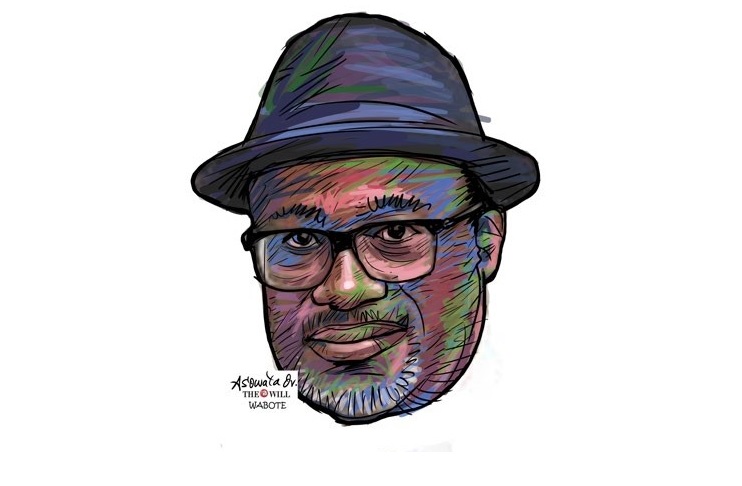By August 25, (THEWILL) – The Nigerian Content Development and Monitoring Board (NCDMB) has made remarkable strides since 2016 under the leadership of Simbi Wabote, demonstrating how capable leadership can drive meaningful progress in Nigeria’s public sector. A close examination of NCDMB’s achievements provides valuable lessons on the importance of appointing competent individuals to key positions in government.
Engr. Simbi Kesiye Wabote, until recently, was the Executive Secretary of NCDMB. He was first appointed in September 2016 and reappointed in 2020, following a stellar performance.
Before this appointment, Engr. Wabote had an exceptional career in SPDC, spanning over 26 years and holding various positions traversing engineering, project management, government relations and corporate governance, exiting as Executive Director. The Nigerian Oil and Gas Industry Content Development (NOGICD) Act of 2010 established the NCDMB and tasked it with developing local capacity in the oil and gas industry and enforcing the provisions of the NOGICD Act.
In 2017, under Wabote’s guidance, NCDMB developed a 10-Year Strategic Roadmap aimed at increasing Nigerian content in the oil and gas sector to 70% by 2027. This ambitious goal sought to create 300,000 direct jobs and retain over $14 billion of the industry’s annual $20 billion spend within Nigeria.
The progress towards this target has been significant. By the end of 2021, NCDMB had moved Nigerian Content from 26% in 2016 to over 43%. This has remained consistent through to today. The establishment of manufacturing hubs in-country for the manufacture of equipment, components, and accessories required by the oil and gas industry, as well as its linkage sectors, has witnessed an uptick as a direct consequence of this ambitious project.
One of Wabote’s most impactful initiatives was the establishment and expansion of the Nigerian Content Intervention Fund. Initially launched at $200 million, it was later increased to $350 million. Managed by the Bank of Industry, this fund provides long-term, low-interest financing to Nigerian oil and gas service companies and manufacturers.
Additionally, the NCDMB partnered with the Nigerian Export-Import Bank to create a $100 million fund specifically for women in the oil and gas industry. The total fund now stands at $500 million, with numerous beneficiaries already receiving disbursements. This financial support has been crucial in building local capacity and reducing dependence on foreign companies.
The NCDMB under Wabote’s exceptional leadership also invested strategically in modular refineries and gas projects, aligning with the government’s goal to increase domestic refining capacity and utilise Nigeria’s vast gas resources. Notable projects include the 5,000 barrels per day (bpd) Waltersmith Modular Refinery in Imo State, commissioned in November 2020, and investment in the 12,000 bpd Azikel Refinery in Bayelsa State. The Board has also partnered on various gas projects, including a 300MMscfd gas gathering hub in Koko, Delta State, and a 5,000MT LPG storage terminal in Delta State. These investments not only boost local production but also create jobs and stimulate economic growth in host communities.
In July 2020, the NCDMB completed its 17-storey eye-popping headquarters in Yenagoa, Bayelsa using local contractors to deliver the world class project within allotted time.
The Nigerian Oil and Gas Parks Scheme (NOGaPS) is another significant initiative under Wabote’s leadership. This programme aims to establish industrial parks in oil-producing states to serve manufacturing hubs for oil and gas equipment components and spare parts. Two parks in Bayelsa and Cross River states are nearing completion, with others in various stages of development. These parks are expected to create about 2,000 jobs each when operational, contributing significantly to local employment and industrial capacity.
Human capital development has been a priority for NCDMB under Wabote’s stewardship. From 2015 to 2022, the Board trained 5,792 Nigerians in various skill sets. These efforts include direct training interventions in areas such oil spill management, geosciences, and underwater welding; project-based training aligned with ongoing industry projects; youth empowerment programs in welding, pipeline maintenance, and other technical skills; and the establishment of vocational schools and ICT centres across Nigeria.
Recognising the importance of innovation, NCDMB launched a $50 million Nigerian Content Research Fund. The Board has also established a Technology Innovation and Incubation Center (TIIC) and is setting up five Research and Development Centers of Excellence in different universities across Nigeria. These initiatives aim to foster local innovation and technological advancement in the oil and gas sector.
The Equipment Component Manufacturing Initiative (ECMI) driven by NCDMB has led to significant growth in local manufacturing capabilities. Local ownership of marine vessels has increased from less than 10% in 2010 to 40% in 2022. The initiative has also facilitated the establishment of valve assembly plants, pipe coating facilities, and other manufacturing units for oil and gas equipment. Line pipe milling capacity has grown from 100,000 MT/annum in 2010 to over 550,000 MT/annum currently, demonstrating the tangible impact of these efforts on local industrial capacity. Under Wabote’s leadership, NCDMB strengthened its compliance monitoring processes. From 2015 to 2022, the Board issued 1,695 Nigerian Content Plans, 964 Nigerian Content Compliance Certificates, and 4,271 Nigerian Content Equipment Certificates. These efforts have increased the percentage of contract value retained in Nigeria from 67% in 2015 to 87.2% in 2022, demonstrating the effectiveness of the Board’s enforcement strategies.
Wabote, who is also an avid golfer, fostered strong inter-agency collaborations, working with entities such the Nigerian Maritime Administration and Safety Agency (NIMASA), the Nigerian Extractive Industry Transparency Initiative (NEITI), and the Federal Ministry of Interior. These partnerships have enhanced the effectiveness of Nigerian content implementation across sectors, creating a more cohesive approach to local content development.
The success of NCDMB under Wabote’s leadership provides several key lessons for Nigeria’s public sector. It demonstrates the importance of long-term planning and clear goal-setting, innovative financing mechanisms to support local businesses, focus on human capital development, collaborative approaches with stakeholders, data-driven decision making, and strategic diversification to create value and reduce import dependence.
To replicate this success across other government agencies and parastatals, Nigerian leaders must prioritise competence and track record in appointments to key positions, implement robust performance monitoring systems for public officials, encourage long-term strategic planning in all government agencies, foster a culture of innovation and continuous improvement in the public sector, invest in capacity building and skills development across all levels of government, promote inter-agency collaboration to address complex national challenges, and emphasise on data-driven decision-making and policy implementation.
Wabote’s tenure at NCDMB stands testament to the transformative power of competent leadership in Nigeria’s public sector. His strategic vision, innovative approaches, and focus on tangible outcomes have driven significant progress in local content development in the oil and gas industry. This example offers a blueprint for success Nigeria can use to address its numerous economic and developmental challenges.
This country clearly needs Wabote and his likes in strategic public offices, if we are indeed serious about delivering real economic growth. The path forward is therefore clear: Nigeria must move away from a system that rewards mediocrity and embrace a merit-based approach to leadership appointments. Only by placing the right individuals in positions of authority can the country hope to address its myriad challenges and create a prosperous future for all Nigerians.
The achievements of NCDMB since 2015/2016 serve as a powerful reminder of what is possible when capable leaders are given the opportunity to serve. It is now time for Nigeria to learn from this example and replicate it across all sectors of governance. The future of the nation depends on its ability to identify, nurture, and empower competent leaders who can deliver tangible results for the benefit of all citizens.






